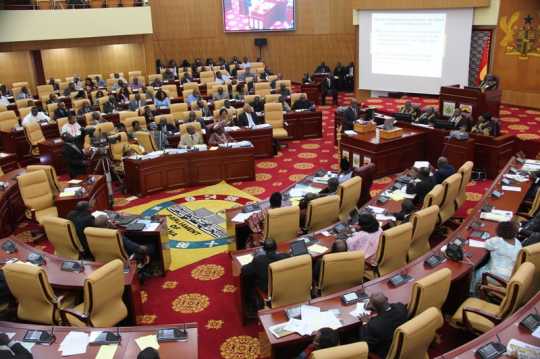In a significant development aimed at reviving its struggling economy and addressing a mounting debt crisis, Ghana has successfully secured a $3 billion deal with the International Monetary Fund (IMF).
The agreement, approved by the IMF’s Executive Board, comes in the form of a 36-month arrangement under the Extended Credit Facility (ECF).
Ghana’s economic challenges have been further exacerbated by substantial external shocks in recent years, resulting in fiscal and debt vulnerabilities. These factors have led to a loss of access to international markets, limited domestic financing options, and a reliance on monetary financing by the government.
The subsequent decline in international reserves, depreciation of the local currency (Cedi), rising inflation, and dwindling investor confidence have all contributed to an acute crisis situation.
Recognizing the urgency of the situation, Ghana’s authorities have taken bold steps to address these deep-rooted challenges. The government’s Post COVID-19 Program for Economic Growth (PC-PEG) forms the foundation of the IMF-supported program. The PC-PEG aims to restore macroeconomic stability, ensure debt sustainability, and implement comprehensive reforms that foster resilience and drive stronger and more inclusive growth.
The approval of the IMF deal enables Ghana to receive an immediate disbursement of approximately $600 million, providing much-needed liquidity to the country’s struggling economy. Moreover, the agreement paves the way for further external financing from development partners, mobilized through the IMF’s catalytic effect. This additional support will be instrumental in facilitating the successful implementation of Ghana’s ongoing debt restructuring efforts.
Key policy measures outlined in the program include a substantial and frontloaded fiscal consolidation to put public finances back on a sustainable trajectory. These efforts will be complemented by initiatives aimed at protecting vulnerable segments of the population. The program also emphasizes ambitious structural reforms in areas such as tax policy, revenue administration, and public financial management. Moreover, specific attention will be given to addressing weaknesses in vital sectors like energy and cocoa.
To ensure macroeconomic stability, the program advocates for appropriately tight monetary policies and flexible exchange rate measures. These measures aim to bring inflation back to single digits and rebuild international reserves, bolstering the country’s economic fundamentals. Furthermore, the program places a strong emphasis on preserving financial stability, encouraging private investment, and fostering sustainable growth.
Managing Director of the IMF, Ms. Kristalina Georgieva, commended Ghana’s comprehensive reform program in response to the economic and financial crisis. She highlighted that fiscal consolidation is a core element of the program, with enhanced revenue generation and streamlined expenditure. These measures create room for increased social and development spending in the medium term. Additionally, the Ghanaian government has embarked on a comprehensive debt restructuring exercise, targeting both domestic and external debt, to put the country on a sustainable debt path. Collaboration among all stakeholders involved is deemed crucial for its success.
Ghana’s successful negotiation of the $3 billion IMF deal is a significant milestone that lays the groundwork for economic recovery and long-term stability. The program’s focus on macroeconomic stability, debt sustainability, and structural reforms promises to revitalize the private sector, enhance governance, and boost productivity. With the continued support of development partners and effective implementation of the authorities’ program, Ghana is poised to overcome its immediate policy and financing challenges and set the stage for a resilient and inclusive future.

 Naira4 weeks ago
Naira4 weeks ago


 Naira4 weeks ago
Naira4 weeks ago


 Naira3 weeks ago
Naira3 weeks ago


 News4 weeks ago
News4 weeks ago
 Travel4 weeks ago
Travel4 weeks ago




 Naira4 weeks ago
Naira4 weeks ago


 Jobs3 weeks ago
Jobs3 weeks ago
 Naira3 weeks ago
Naira3 weeks ago















